October 23 & 25, 2025
Atlanta Symphony Hall, Woodruff Arts Center
Atlanta, Georgia – USA
Atlanta Symphony Orchestra; Vinay Parameswaran, conductor; Kala Ramnath, Hindustani violin.
Nina SHEKHAR: Lumina (2020)
Reena ESMAIL/ Kala RAMNATH: Concerto for Hindustani Violin and Orchestra (2020)
Gustav HOLST: The Planets
Mark Gresham | 29 OCT 2025
This past Thursday and Saturday, October 23 and 25, the Atlanta Symphony Orchestra presented a program titled “Celestial Illuminations”—a celebration of the rich interplay between Indian and Western classical music traditions. The concert featured works by Indian-heritage composers alongside Gustav Holst’s The Planets, creating a sonic bridge that resonated with Atlanta’s diverse community.
Leading up to the main event, the orchestra hosted a free “Visions of India” festival in honor of Diwali, held from 6 to 8 p.m. in the lobby of the Memorial Arts Building, just before the two concerts. The event featured Indian food vendors, traditional dancers, music, and more—setting the stage for an evening of cultural immersion.
By programming a first half of music by composers of Indian heritage and concluding with Gustav Holst’s The Planets, a British orchestral classic, the ASO framed its evening as both a celebration of global connection and a reminder of how cultural conversation continues to shape modern symphonic life. At the same time, the evening’s fusion also reflected Atlanta’s own robust cultural, business, and academic connections and a thriving community of more than 100,000 Indian-American residents in the metro area.
That cultural dialogue runs deep, touching Atlanta’s own social history directly: ancient Hindu writings such as the Bhagavad Gita informed the ideals of American Transcendentalists Ralph Waldo Emerson and Henry David Thoreau, later shaping Mahatma Gandhi’s nonviolent philosophy and, through him, Martin Luther King Jr.’s approach to civil rights.
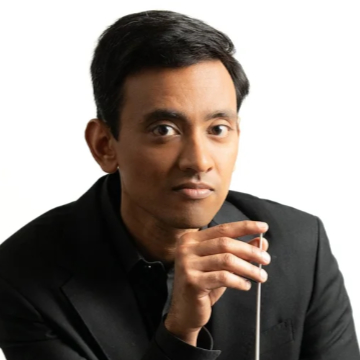
Vinay Parameswaran (credit: Elliot Mandel)
On the podium was Vinay Parameswaran, an American conductor of Indian heritage and a graduate of Brown University and the Curtis Institute of Music. Formerly Associate Conductor of the Cleveland Orchestra, Parameswaran has earned a reputation for his clarity of gesture and stylistic flexibility across both traditional and contemporary repertoire.
The featured soloist, Kala Ramnath, is internationally recognized as one of the foremost voices of the Hindustani violin tradition. A seventh-generation musician from a celebrated family of violinists, she trained under the great vocalist Pandit Jasraj, developing a lyrical, vocal-inspired approach that has earned her the moniker “the singing violin.” Her artistry bridges the improvisatory essence of North Indian classical music with the timbral richness of the Western violin.
While the violin is more commonly associated with South Indian Carnatic music, Ramnath has been a leading figure in adapting the instrument to the Hindustani (North Indian) style. In her performances, ragas unfold gradually through slides, microtonal bends, and rhythmic elasticity, evoking the expressive contours of the human voice. Integrating that fluidity into a Western orchestral setting, as this concert attempted to do, highlights both the challenges and the creative possibilities of intercultural collaboration.
The program opened with Nina Shekhar’s Lumina (2020), which the composer describes as an exploration of contrasts: light and shadow, translucent and dense textures, layers of shifting sonorities and colors. It held the attention in the same way as a Mark Rothko painting, with color, texture, and luminosity having the primary focus.
Next up was >em>Concerto for Hindustani Violin and Orchestra by Reena Esmail, written expressly for Ramnath, emphasizing Indian melodic structure and inflections in dialogue with the orchestral harmonic backdrop. Ramnath’s phrasing was supple and expressive, her tone glowing and resonant. Parameswaran’s baton ensured coordination between the more structured orchestra and the more flexible elements of Hindustani violin playing.
Following intermission, the ASO turned to Gustav Holst’s The Planets—a British landmark whose composer, notably, studied Sanskrit and Indian literature early in his career. The opening “Mars” stormed forward with Blitzkrieg speed rather than the paced gravitas of an oppressive, pondering but relentless force; “Venus” offered lyricism but also came across a little fast, rather than allowing it to glow. Rather than a laundry list of each movement, I’ll just skip to the end here to say that “Neptune” achieved its dreamy atmosphere, capped by the ephemeral offstage voices of women of the ASO Chorus. Alas, the performance was not among the ASO’s best readings of this popular showpiece suite, which they have played many times over the years.
While The Planets did not reach the ASO’s usual high level of refinement, the evening as a whole reminded listeners that musical bridges—between continents, histories, and traditions—remain among an orchestra’s most meaningful pursuits. ■
EXTERNAL LINKS:
- Atlanta Symphony Orchestra: aso.org
- Vinay Parameswaran: vinayparameswaran.com
- Kala Ramnath: kalaramnath.com

Read more by Mark Gresham.
RECENT POSTS
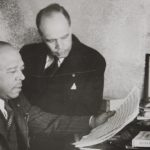 African American spirituals: preserving the heritage, from the Johnson Brothers to today • 29 Oct 2025
African American spirituals: preserving the heritage, from the Johnson Brothers to today • 29 Oct 2025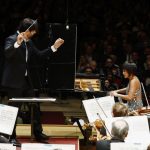 Domingo Hindoyan leads Boston Symphony in fearless Bernstein, Prokofiev, and Copland, pianist Yuja Wang solos with brilliance • 28 Oct 2025
Domingo Hindoyan leads Boston Symphony in fearless Bernstein, Prokofiev, and Copland, pianist Yuja Wang solos with brilliance • 28 Oct 2025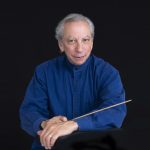 Conductor Arthur Fagen earns strong Italian press for Mozart’s ‘Don Giovanni’ in Jesi and Novara • 27 Oct 2025
Conductor Arthur Fagen earns strong Italian press for Mozart’s ‘Don Giovanni’ in Jesi and Novara • 27 Oct 2025
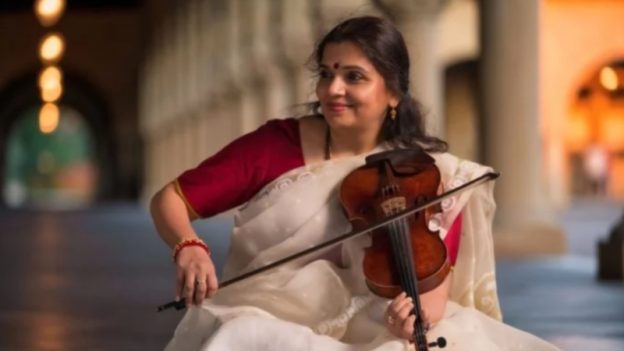

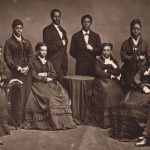
.png)